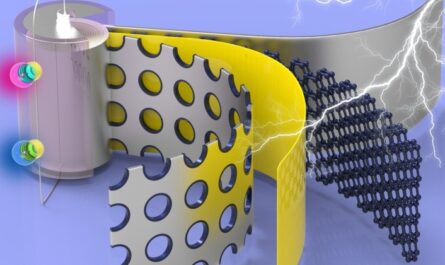New research from the Johns Hopkins Kimmel Cancer Center and its affiliated institutes reveals a potential breakthrough in the treatment of hard-to-tackle prostate and bladder cancers. The study, published online in Cancer Immunology Research on May 3, 2023, suggests that a novel therapy can reprogram immune cells called macrophages to promote antitumor activity, leading to tumor shrinkage in mice.
Immunotherapies, which help the Immune System identify and eliminate tumors, have revolutionized cancer care for various types. However, their effectiveness in aggressive forms of prostate and bladder cancers remains limited. Researchers, led by Jelani Zarif, Ph.D., associate professor of oncology at Johns Hopkins, have been investigating why these cancers resist immunotherapies and how to enhance their response.
Zarif and his team suspected that immune-suppressive tumor-associated macrophages were hindering the immune response against these cancers. Macrophages can either promote tumor growth or suppress it, depending on their activation state. The focus of the study was to reprogram the immune-suppressive macrophages into anticancer immune cells, thereby enhancing therapeutic responses to immunotherapies and standard cancer treatments.
Macrophages rely on the amino acid glutamine for their immune-suppressive functions. Previous research by Zarif’s team demonstrated that monocytes, the precursor cells of macrophages, develop into immune-activating macrophages when grown without glutamine in a lab setting. Conversely, monocytes grown with glutamine become immune-suppressing macrophages.
Building on this knowledge, the researchers hypothesized that drugs blocking the immune cells’ access to glutamine could shift the balance towards immune-stimulating macrophages and help shrink tumors. Although a drug called 6-diazo-5-oxo-L-norleucine (DON) that starves tumors of glutamine has been shown to shrink glutamine-dependent tumors, its development as a cancer therapy was abandoned due to its toxic side effects.
Instead, the researchers turned to an experimental glutamine-blocking drug, JHU083, developed by study co-authors Barbara Slusher, Ph.D., director of Johns Hopkins Drug Discovery, and Jonathan Powell, M.D., Ph.D., former associate director of the Bloomberg~Kimmel Institute for Cancer Immunotherapy. JHU083 is a prodrug that only becomes active inside cancer cells, minimizing the risk of side effects.
The researchers found that JHU083 blocks the use of glutamine in prostate and bladder tumors in mice, leading to tumor growth reduction and tumor cell death. It also reprogrammed immune-suppressing macrophages into immune-boosting macrophages, which destroyed tumor cells and recruited tumor-killing T-cells and natural killer cells to the tumors.
Although an immunotherapy called a checkpoint inhibitor did not increase the effects of JHU083, Zarif believes that JHU083 could be a promising anti-cancer therapy for tumors with immune-suppressing macrophages and insufficient T-cells. It might also be effective against tumors that do not respond to checkpoint inhibitors.
Zarif and his team plan to collaborate with colleagues at Johns Hopkins to launch a clinical trial of JHU083 in patients with treatment-resistant prostate or bladder cancer to assess its tumor-shrinking and metastasis-preventing capabilities. They also intend to continue studying the combination of JHU083 with other treatments to improve its effectiveness against tumors.
*Note:
1. Source: Coherent Market Insights, Public sources, Desk research
2. We have leveraged AI tools to mine information and compile it




